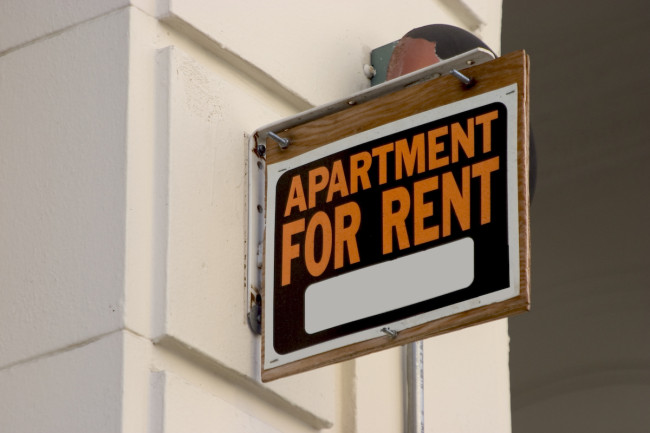Can we sue our sponsor/developer for construction defects or building conditions that differ from our offering plan?

The most common type of case you could bring against your developer or sponsor is breach of contract, says real estate lawyer Bonnie Reid Berkow.
iStock
Can we sue the sponsor or developer of our condo or co-op building for construction defects or building conditions that are different from what is described in the offering plan?
“The law prevents you from suing the sponsor or developer for fraud due to omissions or failures to disclose material information in the offering plan because only the state attorney general can sue for fraud in an offering plan,” says Bonnie Reid Berkow, a NYC real estate lawyer and founding partner at the firm Wagner, Berkow & Brandt.
However, there are remedies available to hold the sponsor/developer responsible for construction defects.
Depending on the applicable facts and circumstances, you may have a claim for breach of contract, common law fraud, breach of express or implied warranties, consumer fraud for deceptive advertising, negligence, and breach of fiduciary duty, among others. Berkow recommends obtaining a report from an architect or engineer documenting building-wide conditions before any action is commenced.
“These types of actions can be very expensive, and you want to have as much information as you can up front," she says. “In one case, the judge actually came to the building with the parties and their respective experts to look at all the claimed problems, and the parties were able to negotiate a scope of work because the defects were documented and clearly contrary to representations in the offering plan.”
Breach of contract
The most common type of case you could bring against the developer of your building and sponsor under the offering plan is for breach of contract. The offering plan is deemed to be a contract between the sponsor and buyers like yourself. Plus, you will have entered into a purchase agreement when you bought the apartment.
“If there are differences between what you bargained for and what you got, you could have a claim for breach of contract,” Berkow says.
For example, the offering plan might specify a certain type of roof or that the roof would be new, but your roof is not new or is of inferior quality. Or perhaps your heating/AC system or windows are different than what was indicated in the plan or are defective. There are many conditions—such as a leaking roof, buckling floors (is “engineered wood” really “wood?”), and flooding basements—that may constitute a breach of contract, depending on what information is contained in the offering plan.
Since the offering plan generally states that your building will be constructed in accordance with the representations in the offering plan—and with industry standards and compliance with all applicable laws—if there are violations of building codes, zoning or other problems, “these and many more things may give rise to a claim for breach of contract,” Berkow says.
A claim for breach of contract typically must be brought within six years of the date of the contract, she adds. However, your offering plan and/or purchase agreement may provide for shorter time periods or require notice of defects be provided within a fairly short window. The terms of the plan, and all relevant documents, should be carefully reviewed by your lawyer to look for these required notice provisions.
“The offering plan usually provides that the sponsor’s only obligation is to repair anything found to be defective," Berkow says. "If the sponsor fails to repair, or the repair is itself defective, that could also be a breach of contract.”
Common law fraud
Although you cannot sue for fraud based on omissions in the offering plan, you can sue for common law fraud if the sponsor made separate representations with respect to quality of building construction or lack of defects.
“However, a fraud claim cannot be maintained if the only fraud alleged is based on the same allegations as the breach of contract,” Berkow says. “Often, a fraud claim will be dismissed as duplicative of the breach of contract claim.”
There are some cases holding an individual member of a sponsor limited liability company who signed the certification contained in the offering plan independently liable for fraud, she adds, if they personally participated in the transactions and knew of facts that existed at the time of signing which were contradicted by facts specifically represented in the offering plan.
Deceptive consumer practices and false advertising
General Business Law 349 and 350 prohibit deceptive business practices and false advertising, respectively, and may impose liability on a sponsor who is alleged to have engaged in such practices in connection with your building’s construction and sale of units.
Instances include misrepresenting the quality of construction of the building, common areas, and units; the building’s primary features in the promotional marketing material; and if injury resulted from either practice.
“There is a difference of opinion in the courts as to whether an offering plan is sufficiently consumer oriented—i.e., to the public at large, or whether it is unique to a particular building in order to sustain this type of claim,” says Berkow. “Thus, whether you can allege such a claim depends on where your building is located. In Brooklyn, such a claim may be permitted; in Manhattan probably not.”
Breach of fiduciary duty
If the sponsor still controls the board, it has a fiduciary obligation to act in the best interests of the shareholders/unit owners.
“Thus, where it is alleged that sponsor board members violated this duty by, for example, improper use of corporate/condominium funds, a claim may be asserted against the individual sponsor board members for breach of fiduciary duty,” Berkow explains.
Architects, engineers & contractors
You may be able to take action against architects who negligently prepared or filed plans, or contractors who failed to build in accordance with plans, Berkow says.
“These types of claims are more difficult to assert directly because the contract is likely with the sponsor entity, not the condominium or cooperative corporation asserting the claim,” she says. “However, it is often the case that the sponsor, if sued, will bring in the architects, engineers, contractors, and subcontractors as third-party defendants and seek to blame them for any construction defects.”
New York City real estate attorney Bonnie Reid Berkow is a founding partner of Wagner, Berkow & Brandt with more than 30 years of experience litigating in state and federal courts in New York state, including cases involving breach of contract, fraud and breach of fiduciary duty, in addition to real estate disputes and commercial actions. To submit a question for this column, click here. To ask about a legal consultation, send an email or call (646) 780-7272.
You Might Also Like



























